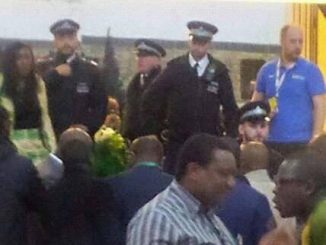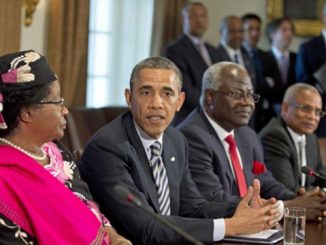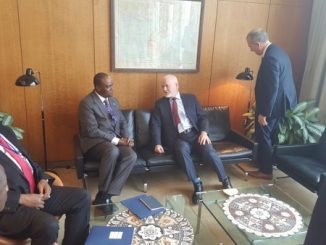New York Times
By LYDIA POLGREEN
Published: September 15, 2007
DAKAR, Senegal, Sept. 14 — With more than three-quarters of the vote in Sierra Leone’s presidential race counted, the opposition candidate appeared to have an insurmountable lead on Friday against the vice president, whose party has run the country through more than a decade of brutal civil war and fragile peace.
Ernest Bai Koroma, of the opposition All People’s Congress, had about 60 percent of the 1.4 million votes counted, ahead of Solomon Berewa, the hand-picked successor to Ahmad Tejan Kabbah, who is stepping down after 12 turbulent years in and out of office.
If Mr. Koroma is confirmed the winner, the succession will be the first time power has peacefully shifted from one party to another in a country whose history has been marked by strife. The election, which went to a second round after the first round failed to produce a clear winner, was one of the most competitive in the region in recent memory.
Mr. Koroma criticized the government of Mr. Kabbah and his deputy, Mr. Berewa, saying it had failed to tackle corruption and deliver a peace dividend to Sierra Leone. A tiny country on the west coast of Africa, it has considerable wealth in diamonds and timber, but has suffered through decades of misrule and violence.
The civil war, which was spawned by a conflict in neighboring Liberia and fueled by Sierra Leone’s lucrative alluvial diamond mines, ended in 2002, but many Sierra Leoneans still have not seen a significant improvement in their living standards. Their nation remains one of the poorest on earth, and efforts to reduce child deaths, malnutrition and maternal mortality have produced limited results.
The country has struggled to recover from the war, one of Africa’s bloodiest, in which boy soldiers addled by drugs hacked limbs off civilians on the orders of their commanders.
But if Mr. Koroma’s likely victory signals change, his party comes with its own political baggage: It ruled Sierra Leone during the long and deeply corrupt era that preceded, and perhaps produced, the civil war that killed tens of thousands of people and sent millions fleeing their homes.
The election tested the police and military, which were reconstituted after the war while United Nations peacekeepers patrolled the country. The peacekeepers left two years ago, and the nation’s security forces had to contend with sporadic election violence on their own. Despite some violence before the second round of elections, the voting, held last Saturday, was peaceful.
More Articles in International »




Leave a Reply